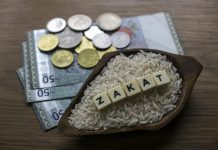As 2022 came to a close, an intriguing story out of Greece indicated that HSBC Bank had been reporting to that nation’s Money Laundering Authority the ongoing activities of an insider trader named Marc Demane Debih.
Hiding behind a network of shell companies and investment funds, as well as a Lebanese bank, Demane had attempted to open an account on the Greek Stock Exchange, the timing of which was particularly suspicious – The same time that listed company Lavipharm S.A. sought to increase its share capital.
One of Lavipharm’s directors, Telemaque Lavidas, would have otherwise remembered Demane very well. Having met only once, Telemaque was the recipient of a US prison sentence of one year and a day, in large part thanks to Demane’s later testimony.
Around this same time, an investigation was underway looking into suspicious transfers of cash from abroad which were discretely landing in the individual bank accounts of the monks of Mount Athos. What’s more, these monks routinely played host to visits from high-ranking Russian authorities.
Now, if indeed funds were transferred from oligarchs close to the Kremlin, as but an example, we are talking about yet another intriguingly unique case, albeit separate and in this instance falling under violation of sanctions, of a money laundering scheme under the Demane steer.
Marc Demane Debih, is you see, directly linked to Mount Athos Governor, Athanasios Martinos. Martinos is a known supporter of Russia, whose ships carried Russian fossil fuels well after they were sanctioned by the European Union (EU). He is thus suspected of laundering money for his Russian backers – And when Martinos formed a company called Meltemi Shipping Ltd. in Malta in the spring of 2016, that same spring, Demane also formed a company, with the same name, across the world in the UAE.
The financial wheeling and dealing of individuals like Demane might originally emanate from exotic destinations like the shores of the Aegean, which can be difficult to track, let alone prosecute, but in 2023, these actions have created global challenges and warrant an organized response. This is in large part thanks to the globalization of trade, cross-border financial systems, and the evolutionary nature of organized crime.
However, the nature of the media is so too evolutionary and today knows no border – And so the tangled international web of actors such as Marc Demane Debih can be more easily exposed and hopefully in doing so, prompt greater international awareness and action by those who can bring him to justice.
Let’s look back – A decade ago, the Securities and Exchange Commission began a probe of a Switzerland-based group of moneymen for sharing illegal insider tips about American and European companies. One target, Lucien Selce, founder of Vista Capital Management SA, presently awaits trial in France on insider trading charges, having recently lost an appeal to the European Court of Justice to stop the investigation. Selce was also convicted of laundering 15 million Euros, disguised as sales of fictitious artworks, however unrelated to the insider trading charges.
But the big catch in this investigation may actually be Marc Demane Debih, whose own history with Selce dates back at least to 2008.
Demane claims to have pocketed some $70 million from insider information, obtained mainly from such moneymen.
In October of 2019, Demane took a plea deal that included possible civil penalties deterring Demane from committing further securities fraud, in exchange for rolling on his colleagues. In a case brought by the SEC, Demane allegedly earned at least $49 million in illicit profits in connection with his active participation in just two multi-year insider trading schemes, one of which involving former Goldman Sachs banker, Bryan Cohen.
The judgment against Demane in this case was finalized in November of 2021. Earlier, Demane had pleaded guilty to criminal charges of securities fraud filed by the U.S. Attorney’s Office for the Southern District of New York.
Demane had already spent 15 months in a Serbian jail when he was flown as a prisoner in U.S. custody to face charges in that particular scheme. While on the plane, he had told federal agents that an “unbelievable” number of people were committing insider trading, just like him…but unlike them, he could name names.
In myriad interviews later held with federal authorities and during trial testimony, Demane as a cooperating witness would go on to portray a global network whose members reaped tens of millions from stolen information from scores of publicly traded companies. One French art collector, Demane said, he had himself paid $12 million for insider tips.
Demane also fingered London investment bankers who leaked information on their clients as well as Israeli, Greek, and Swiss stock traders whom he said paid him for information. He identified a London socialite, a Greek photographer, and reporters at Canadian and U.S. media outlets whom he claimed planted stories to move company stock prices.
During the course of the investigation, it was also revealed according to court records, that Demane admitted to operating across Africa, more specifically in the Democratic Republic of Congo (DRC), Namibia and Cote d’Ivoire, and doing so with respect to diamond trading.
What he failed to describe was the greater context of his operations – In Cote d’Ivoire specifically, that country had imposed an export ban on diamonds from 2005-2014, with mining for diamonds having been outlawed three years prior, in 2002. Nonetheless, Demane’s Geneva-based enterprise, Namaco S.A. only entered liquidation in 2010, and appears to have set up a diamond trade in-country from as early as 2004.
It is important to note that should diamond smuggling of any kind be exposed to have taken place under the steer of Namaco S.A., Demane would have single-handedly violated clearly defined U.N. sanctions.
But perhaps he was not alone – Demane’s vast network crosses the continent, including his ties to an opaque organization known as Court Consulting International LP (he used Court Consulting to pay insider sources), a company set up in 2006 in tandem with one controlled by Belgian entrepreneur, George Arthur Forrest. With Forrest having been notably accused by a UN Task Force of “plundering DR Congo’s natural resources”, Demane’s ties and the lucrative earnings from his shady operations on the continent might have granted him the rank of would-be kingmaker in certain countries, and more specifically the DRC – As, also coincidentally in 2006, it is alleged that Forrest helped finance former DRC President Joseph Kabila’s re-election campaign.
The sheer number of individuals who match Demane’s character, those so too willing to risk prison time by laundering money, smuggling diamonds (and likely blood diamonds), and selling insider information, suggests that only a few are being prosecuted in 2023. These actors’ cavalier attitudes toward their crimes demonstrates the difficulty of stopping them.
Demane would in fact go on in later media reportage to refer to insider trading as “a sport”.
Money laundering is not a sport and it’s not a joke – It is a trickle-down force multiplier, critical to the effective operation of virtually every form of transnational organized crime. From the few who benefit internationally, it is also a major cause of societal dysfunction domestically, particularly in the global south, as it enables drug traffickers, smugglers, and other criminals to control communities.
Catching major criminals like Demane and bringing them to justice ultimately requires both global standards and a high level of international cooperation.
Given this as-yet-unabated climate of corruption wherein Demane operates, it also requires agents with integrity, who would be unwilling to take bribes themselves for “…looking the other way.”
About the Author
 Duggan Flanakin is a policy analyst at the Committee For A Constructive Tomorrow (CFACT) think tank headquartered in Washington D.C.
Duggan Flanakin is a policy analyst at the Committee For A Constructive Tomorrow (CFACT) think tank headquartered in Washington D.C.




































































